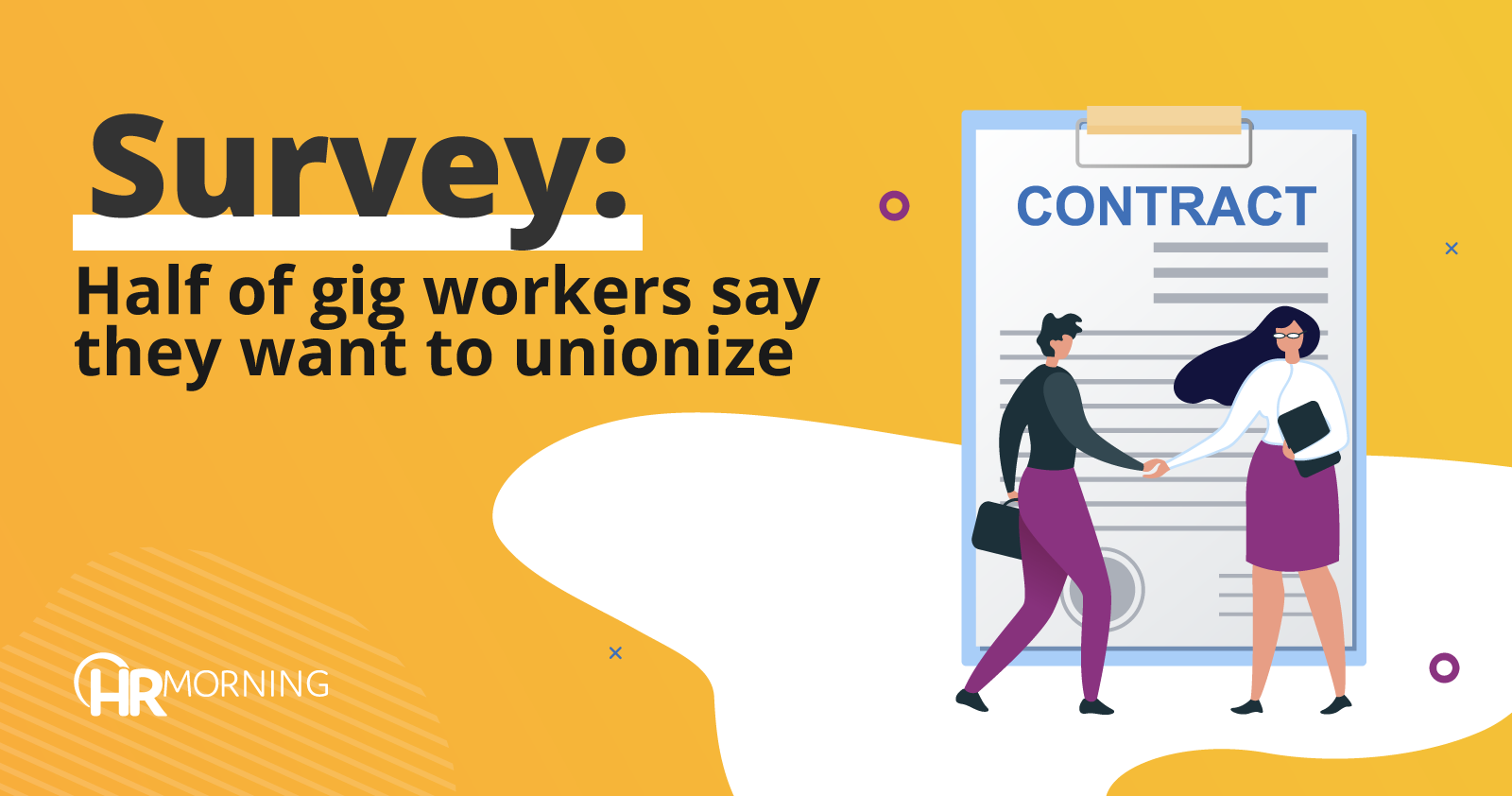More than half of gig economy workers responding to a recent survey said they believe the “alternative workforce” should unionize.
And the desire to unionize extends to gig workers who say they are satisfied with their current job.
Why? So they can get paid fairly, have some level of benefit coverage (about three-quarters of gig workers in the U.S have no health insurance coverage) and generally work on a more equal basis with their full-time colleagues.
In a recent survey, 79% of respondents told Ceridian they are “somewhat” or “extremely” satisfied with their current job. But more than half said they are worried about having adequate work and income in the next two years with 40% rating their level of worry as “moderate” or “extreme.”
Unstoppable rise of the gig economy
The rise of the gig economy — workers who leverage technology to find and accept multiple temporary jobs — is changing the economy and individual companies’ talent strategies. And these aren’t all the new generation of temps — many permanent employees are often engaged in “side hustles.”
These workers fulfill a variety of roles and engage with employers in different ways.
For example, workers may work independently for one company, work independently for more than one company, freelance/consult with various clients, contract with one company at a time or contract with multiple companies simultaneously.
40% of U.S. workers doing gig work
Estimates from Deloitte and others indicate as much as 40% of the U.S. workforce engaged in some form of gig work.
HR technology and service giant Ceridian surveyed a cross-section of these workers to improve understanding of some basic questions:
- Is alternative work the future or a trend?
- Are these workers happy or do they feel exploited?
- What motivates alternative workers?
Among the more important takeaways from Ceridian’s 2020 Pulse of Talent: Engaging the alternative workforce study are that this new model of work is here for the long haul and employers must do a better job of finding, hiring and caring for these workers.
Ceridian’s researchers say that companies need to make an effort to engage with and understand the needs of this cohort. These are not the traditional temp workers who can be fitted into any slot for a few weeks or months without any thought about what they do well and how they work best.
Competitive advantage for employers
Hiring gig workers is not a discount payroll strategy — and will become even less so going forward.
Savvy employers will leverage gig workers’ flexibility, variety of skills and experience and willingness to work hard without the security of a full-time salary and benefits.
And they’ll achieve a sustainable competitive advantage.
But any company that gains a reputation for treating these workers poorly – low pay, slow pay, second-class treatment of any kind — will soon find it impossible to attract quality workers and will likely fall behind.
HR needs to take the lead
In another Deloitte study, almost half of HR pros said they are not involved in onboarding these workers and more than half don’t see a reason to train them.
And the downside should be obvious.
Just as in the permanent workforce, poorly trained workers who don’t understand your values, mission, and customer needs will never contribute real value to your organization.
And a transactional approach of trading uninspiring pay for uninspired work will ensure you won’t develop long-term relationships with high-skilled gig workers.
Taking care of gig workers’ health
One final finding from Ceridian’s 2020 Pulse report — the uncertainty, lack of stability and other challenges of gig work to create high levels of stress and associated physical and mental health impacts.
Smart employers will work to provide gig workers access to some level of mental health support, even if it is just assigning someone to check in occasionally to “take their pulse” and make sure they’re not feeling isolated or ignored.



